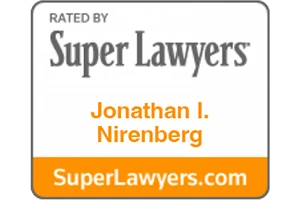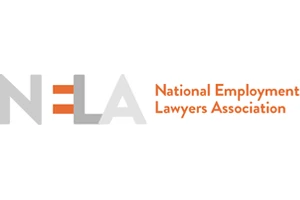of Employees
Non-Compete Agreements
New Jersey Non-Compete Agreement Lawyers

Non-competition agreements are contracts in which employees agree not to work for a competitor for a particular number of months or years after leaving their current job.
Non-compete provisions are more common for certain positions, including sales and marketing jobs, physicians and other healthcare professionals, software engineers, scientists, inventors, and business owners who have sold their companies. However, employers often ask or require employees in other roles to sign non-compete agreements.
In both New York and New Jersey, non-compete agreements are supposed to protect the employer’s legitimate interests, such as its trade secrets and confidential information, and to give it time to recruit and train a replacement. But, in practice, they also limit the employee’s ability to find another job, negotiate a raise with their current employer, or earn a living.
NOTE: On April 23, 2024, the Federal Trade Commission (“FTC”) issued a rule banning most non-compete agreements in the United States. However, that Rule will not go into effect until 120 days after it is published in the Federal Register. In addition, the Rule is expected to be challenged in court, and potentially could be delayed, modified or overruled. For more information, please see our article: FTC Bans Most Non-Compete Agreements.
Understand Your Non-Compete Agreement Before You Sign It
Any agreement that contains a non-competition or non-solicitation clause requires you to give up important rights and limits your future career options. Before you sign an employment contract, employee handbook, severance agreement or another document that includes a restrictive covenant, you should make sure you fully understand how it might impact you now and in the future.
Reviewing and Negotiating Non-Compete Agreements
Since employers almost always are the ones that draft non-compete agreements, they typically are extremely broad and unfair to the employee. For example, they might prohibit you from working in your field or line of work for an unreasonably long period of time, define “competition” in an overly broad way, or cover too wide a geographic area.
While it is possible that a court eventually could rule that your entire non-compete agreement is unenforceable because it contains one or more unreasonable provisions, more often a judge will reduce or modify the restrictions to make them reasonable. In the meantime, potential employers are much less likely to offer you a job.
As a result, it is extremely important to speak to an experienced New Jersey non-competition agreement attorney before you sign a non-compete agreement or other restrictive covenant. We can advise you about the risks of signing the agreement and help you negotiate more reasonable terms.
Avoiding and Defending Non-Compete Lawsuits
New York and New Jersey courts generally disfavor overly broad and unreasonable non-compete agreements. In fact, in New York these restrictions can be unenforceable if you lost your job through no fault of your own, such as if you were laid off as part of a reduction in force.
Whether you are an executive, a salesperson, or work in another field, with an experienced employment lawyer you may be able to successfully defend against a non-compete lawsuit, or to negotiate a resolution with your former employer that allows you to work for one of its competitors.
Experienced New Jersey Non-Compete Agreement Lawyers
Our law firm is a leader in employment law. Through our work on numerous significant and precedent-setting cases, we have changed the law and improved conditions for employees throughout New Jersey.
If you have been sued or threatened with a lawsuit relating to a non-compete agreement, want to know whether your contract prevents you from accepting a job offer, or are considering signing an employment contract or severance agreement that contains a non-compete clause, Rabner Baumgart Ben-Asher & Nirenberg, P.C. can help.
To schedule an appointment with one of our experienced New Jersey non-competition agreement attorneys, please contact us online or call us in New Jersey at (201) 777-2250.
Related Articles
Want to learn more about non-compete agreements? Then browse one of these articles from our New Jersey Employment Law Blog:
- When is a Non-Compete Agreement Enforceable in New Jersey?
- Are Non-Compete Agreements Enforceable Against New Jersey Psychotherapists?
- Appellate Division Narrows But Enforces ADP’s Non-Compete Agreement
- Third Circuit Affirms Injunction in Non-Compete Case
- Court Prohibits Employees from Violating Non-Compete Agreement
- Unlicensed Employment Agencies Cannot Enforce Non-Compete Agreements
- No Compensatory Damages for Breach of Non-Compete Agreement Without Proof of Actual Harm
- Are Stock “Clawback” Provisions Unenforceable Penalties?













